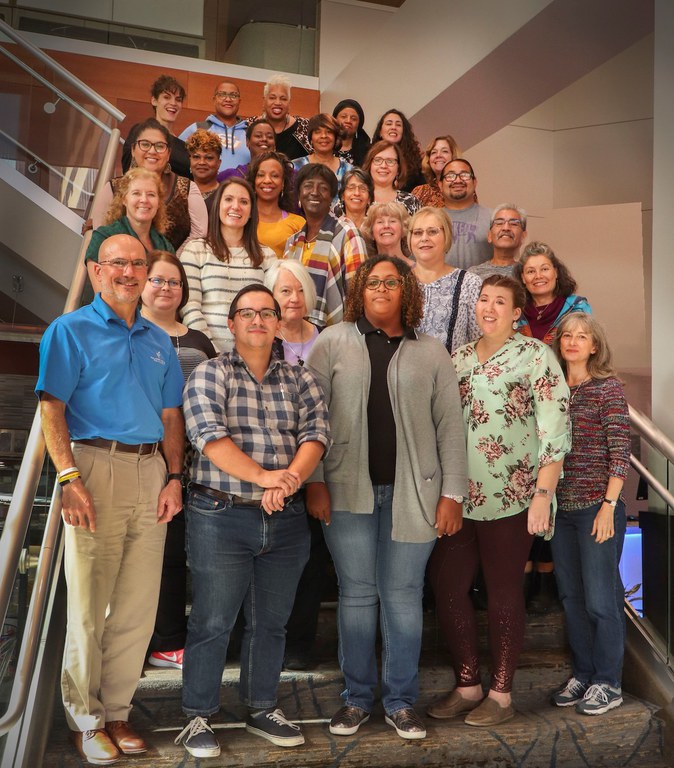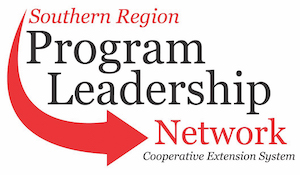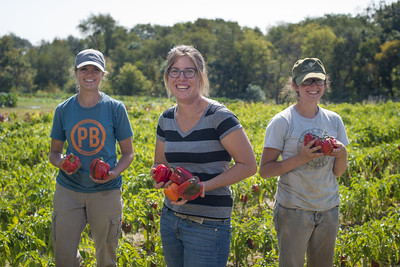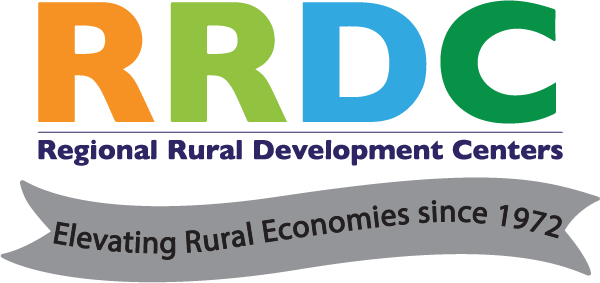Centering and Promoting Equity, Access, and Opportunities
The RRDCs have several initiatives underway to center and promote diversity, equity, inclusion, and accessibility—from facilitating collaborations with tribal colleges to supporting training for communities to engage in civil dialogues around race relations.
Coming Together for Racial Understanding

This initiative facilitated by the RRDC in the South promotes community dialogues that lead to action related to improving race relations. Thirty-two state teams have participated in an intensive train-the-trainer process. The COVID experience led to adopting innovations for continuing to advance this work through virtual spaces. Lessons learned on process and outcomes are being disseminated to inform further dialogue to action efforts.
(Image: Coming Together class of 2019; credit: Southern Rural Development Center)
Heirs’ Property Resolutions and Prevention
Heirs’ property—defined by USDA as land that has been passed down informally through generations, in most cases without a will - leads to limitations on land usage and can prevent leveraging the resource in significant ways. African American communities in the southern Black Belt have been particularly affected, although similar situations exist in the Mississippi Delta, in white communities in Appalachia, with Native Americans living on tribal lands, and in the Hispanic Colonias in South Texas. The RRDC in the South (SRDC) is partnering with the Cooperative Extension System, researchers, and non-profits in the South on efforts to advance capacity building. Initiatives include a multi-state Southern Extension and Research Activity (SERA-49) on heirs’ property, and an Extension curriculum being used in partnership with the Socially Disadvantaged Farmers and Ranchers Policy Research Center entitled, “Understanding Heirs’ Property at the Community Level.” SRDC is facilitating train-the-trainer workshops nationwide to give Extension and outreach professionals the tools they need to help families make steps toward securing their land for productive use. Learn more about these efforts.
1862 and 1994 Land Grant Universities Collaboration
The RRDC in the North Central region (NCRCRD) continues to facilitate collaborations between 1862 and 1994 Land-Grant Institutions. Recent outcomes include:
- The project of NCRCRD’s inaugural Fellow, Stephen Gavazzi, Ph.D., with The Ohio State University, resulted in the creation of a new online resource that serves as a unique inventory of 1994-1862 Land-Grant partnerships.
- The partnership with Dr. Gavazzi led NCRCRD to support and facilitate a session at the NIFA-funded First Americans Land-Grant Consortium (FALCON) Post-Conference Workshop in 2022 which Dr. Gavazzi organized. This event focused on 1994 land-grant teaching, Extension programs and research that benefit Native American students, communities, governments, and lands. At this post-conference, NCRCRD introduced the 1994 Land Grant Innovation Grant which specifically aims to enhance the ability of North Central Region Land-Grant institutions to positively influence the quality of life for 1994 Land-Grant stakeholders in rural areas, sovereign nations, and Native American communities in the twelve states of the North Central Region of the United States with priority given to proposals led by NCR 1994 Land-Grant faculty/staff.
- Faculty at the College of the Menomonee Nation and Michigan State University collaborated on research, Extension, and outreach related to broadband use and business development in rural and tribal areas. The collaboration resulted in a funded $500,000 NIFA grant application.
1890 and 1862 Cooperative Extension Service Partnership Strategies

Cooperative Extension Service leaders in the South are joining with the RRDCs in exploring opportunities to better align efforts across the 1862 and 1890 systems, including collaboration through the Southern Region Program Leaders Network. Furthermore, through a dialogue-to-change model, these leaders have been thoughtfully considering action steps in a collaborative manner. Recent efforts include a survey and interview initiative to document and draw lessons learned on collaborations that work between 1862 and 1890 universities.
Digital Literacy in Underserved Black Communities

The RRDC in the South is working hand-in-hand with five 1890 Land Grant Universities to expand digital literacy skills in communities that are predominantly Black/African American. Bridging the Digital Divide is funded through a three-year AFRI grant. The first two years were spent learning how the digital needs of Black communities differed from other populations. In year 2, a curriculum was developed to support the needed skills. In this third year, SRDC and 1890 teams are piloting a new curriculum.
Northeast Digital Equity Summit and Working Group
The regionally focused Listening Sessions held in 2022 revealed infrastructure to be a high priority for Northeast stakeholders, in addition to the cross-cutting areas of diversity, equity, inclusion, and access, and the rural/urban divide. The 2023 Northeast Digital Equity Summit was planned to address these issues and to provide a platform for Extension and Research faculty to learn from one another and expand capacity for digital equity programming in the Northeast and beyond. The RRDC in the Northeast is working with the summit planning team to leverage the momentum from the event, which took place in September 2023, including facilitating regional collaborations and education/outreach programming to highlight where work is still needed in the region.
Undergraduate Leadership Development
Collaborating with the Mississippi State University Honors College and the multi-institutional Delta Directions Consortium, the RRDC in the South assists with programming for the Delta Scholars Program, an undergraduate leadership development initiative that advances diversity in public service, including the areas of public health, social sciences, and law and policy.
Understanding the Contributions and Characteristics of Women Farmers

Female participation in agriculture is at an all-time high. Research into the contributions and unique characteristics of U.S. female farmers is needed not just for reasons of equity, but also to support a more diverse and resilient agricultural sector in general. The RRDC in the Northeast (NERCRD) conducts research designed to shed light on the ways in which female-owned farms are unique to offer important insights into how best to serve this population. NERCRD researchers are also examining the impact of female-owned farms on local economic and agricultural conditions. Findings from this line of inquiry will be published later this year.
Minority and Female Entrepreneurship Research
The RRDC in the Northeast is collaborating on two research projects examining entrepreneurship among minorities and females:
- Minority- and Women-Owned Businesses, Food Security, Innovation and Access to Credit in Rural America (two-year project with USDA ERS)
- Research on Factors affecting the success of female and minority rural entrepreneurs and rural economic vitality – three-year USDA NIFA project led by Heather Stephens at West Virginia University
As part of this work, in a paper presented at AAEA in July 2023, the research team examined how the Community Reinvestment Act (CRA) affected minority and female employment from 2012 to 2019. They also investigated whether the effects varied between metro and nonmetro areas. According to the statistically significant findings, the CRA designation increased residence-based employment in CRA-designated tracts, including job growth for female and minority groups. Additionally, they observed that these effects were higher in tracts located in non-metropolitan areas compared to metro areas.
